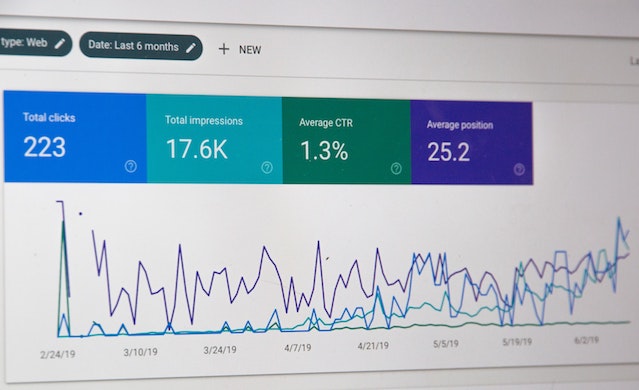
Do you want to be geographically flexible and work in one of the most perspective and secure spheres? Then the career of a data analyst is a great option to explore. Especially if you already have some skills or experience in mathematics, statistics, and programming.
Everyday companies collect huge amounts of data that needs to be processed and analyzed so that enterprises and small businesses could take the right decisions and optimize their strategies. A data analyst is a person who performs this analysis. They process data on the company’s products, customers and performance and help to define what improvements should be made in the production process, what marketing strategy is the best to fit the goals, what product should be next on the market as well as many other crucial issues.
Data analyst responsibilities
A data analyst collects data, analysis it, and creates reports that demonstrate the research conclusions. Besides, the data-analyst collaborates with other members of the team and presents tangible results of their work to the whole team and even larger audiences.
Collecting data
This is the most technical aspect of an analyst’s job. They create routines to automatically collect data from various sources and work together with the developers to streamline these processes.
Analyzing data
Before producing a report based on the collected data an analyst needs to find out important patterns in the data. Seeing trends and insights that the company can use to adapt, transform, and improve its strategy is extremely important.
Creating reports
A successful data analyst understands how to create reports that tell a story. It’s worth remembering that the next level decision-makers are usually not analysts, thus the reports need to be comprehensive enough to remain valuable.
Collaborating with others
The word “analyst” might make you think of someone working apart from the rest of the company, but that’s far from the truth. The wide variety of data analyst roles and responsibilities means you’ll collaborate across many other departments in your organization including marketers, executives, and salespeople. You’ll also likely collaborate closely with those who work in data science like data architects and database developers. Being able to communicate well is important. Collaborating with programmers, engineers, and organizational leaders to identify opportunities for process improvements, recommend system modifications, and develop policies for data governance.
Creating technical documentation
Creating appropriate documentation that allows stakeholders to understand the steps of the data analysis process and duplicate or replicate the analysis if necessary.
Skills and education requirements
A data analyst career is a great option to explore on its own and as a gateway to data science. So let’s look at the skills and education requirements one needs to have to become an analyst.
Academic background
A bachelor’s degree in IT, data science, statistics will give a considerable advantage, however equivalent experience in data and business analytics also fit the bill.
If you lack the background and the experience you can still get the job after you take qualification training or complete an online course that can give you the foundation you need to match your teammates.
Higher-level data analyst jobs usually guarantee a higher pay and may require you to have a master’s or a doctoral degree.
Skills
Apart from the background and experience, it is crucial to have a certain set of technical, practical, and soft skills to become a successful analyst.
- Technical skills: first of all, these are programming languages such as R, Python, C++, Java, MATLAB, PHP, and more. As a data analyst, you should be familiar with languages, such as R, HIVE, SQL. Building queries to extract the desired data is an essential aspect of data analysis. Advanced Excel skills will be required, much more than just spreadsheets, be ready to use V-lookups, pivots, macros, etc. Besides, you would have to create accurate reports, so here are some standard tools that an analyst should be aware of SAS, Oracle Visual Analyzer, Microsoft Power BI, Cognos, Tableau, and more.
- Practical skills: strong attention to the detail and the ability to quality check your work to ensure data mistakes are caught prior to work delivery. Analytical and data interpretation skills, problem-solving skills, the ability to initiate and drive projects to completion with minimal guidance, confidence to challenge thinking and offer opinions, the ability to communicate the results of the analysis in an effective manner, as well as quick learning skills.
- Soft skills: excellent communication skills both verbal and written, an ability to articulate complex concepts in a clear and concise manner, some level of flexibility, so you can collaborate effectively in changing work environment, good listening skills.
Career paths
Here are 4 main directions your data analyst career path is likely to take depending on your interests and skills. Your options are really wide open though and can easily be tailored to what you’re interested in.
A specialist — for those who want to stay in a technical role and develop their skills. Usually, this path starts as a junior analyst and progresses to a senior specialist position and then depending on the company’s structure a leading analyst or a principal analyst or moving to a data scientist role. You will be building your programming, statistical and analytical skills. You’ll be integrated into the business processes as an expert or a guru.
A subject matter expert(SME) — the go-to expert in a certain area, they might not be technically as advanced. This type of data analyst becomes a specialist in the industry, business division, or technology. You can be an SME in HR or a warranty or financial data analyst. In job titles, it may be very similar to a technical specialist. You’ll begin as junior and will progress to the senior specialist, but the responsibilities will be different, they will be closer to the manager’s roles or the project manager roles. You are closely connected to the business and build a good network. The path will suit people who really like data and like interacting with people.
A manager starts as an associate and passes through a team-lead role where you had a responsibility for a project or a group of people. If you decide to pursue the management path your biggest challenge here will be stepping back from the details, as you won’t have time for that. Instead, you will need to focus on a higher-level picture, good perspectives of moving into a business analyst role or enterprise architect role.
To learn more about how an analyst’s career can develop watch the video by The Career Force:
Analyst career pros and cons
Pros
- The job is in demand. There are not so many people with the required skill sets to become successful in this field, prospective job seekers have numerous opportunities and career paths.
- The sector is versatile, it has numerous applications in various industries, including healthcare, banking, e-commerce, and marketing, among others. Therefore, you will not be tied to a specific business or function and can work in any field that uses data to drive decisions.
- The job itself is challenging. It combines such disciplines as mathematics, statistics, computer programming, and strategy. And since technology is constantly evolving, it demands that you continuously learn new skills.
- Flexibility. You can work remotely no matter where you are. Many companies offer remote positions for such jobs.
- It is a demanding job. It takes a lot of work determination, and commitment to achieve a position in the industry that will earn the promised $120k – $200k. If you are not willing to work hard to become a data analyst, then you might want to think about it before diving in.
- To become successful in this job you will need time. There are a lot of resources to get you started in the data industry. They are available to you at home, at your local college, or around the world. But, they will all take an investment of time and you must be willing and able to invest the necessary time.
- In case you don’t have a natural ability to maths, you will need to work really hard to build the necessary skills. Otherwise, you will burn out and give up very quickly.
How to improve a qualification
Already have basic skills and think of broadening your expertise? Here are more analytical skills you may consider learning:
- Google Sheets (basically the cloud version of Excel).
- Google Analytics/Google AdWords.
- If you didn’t have experience in visualization tools, then you can download a free version of Tableau to get started.
- Data Studio is a good alternative to Tableau and it’s free.
- Statistics and math skills (linear algebra and multivariable calculus will give you a competitive advantage).
- Understanding of machine learning (you don’t need to become an expert, just need to have the basic foundation of machine learning).
How to land a data analyst job with no experience
If you think about landing a data analyst job and do not know where to start, below are the tips to help you launch your career even without experience:
- Focus on your technical skills, primarily on Excel. You can improve your level for free using online training tools and this will give you a considerable advantage when applying for a job.
- Learn proficiently one of the programming languages, for example, Python. Often even if an employer works with another programming language, they may overlook that. If you are experienced enough in one or more other languages, you will learn fast, as these skills are very transferrable. If you know Python you will be able to switch to SAS rather quickly.
- Ask an employer to give you a real-world test-task and try to solve it. Being able to solve problems matters more than experience
- Try to get an internship, if you are in college, this can be a great opportunity. As it will show that you can apply all the skills you’ve learned to actual life scenarios. This will dramatically improve your chances to get a good job, right after you graduate.
- Apply for the jobs you like. If you meet all the criteria listed in the job description you are probably overqualified. You don’t have to have every single skill if you are applying. Sometimes, we tend to underestimate our skills and do not make good use of the opportunities.
FAQ
What are the 3 top skills for data analysts?
To land a job as a data analyst you need to know one or more programming languages and be an advanced user of Excel. Then you should be experienced in working with visualization tools, such as Tableau. And the last, but not the least, be good at communication and presentation.
Does data analytics require coding?
Usually, data analysts use programming languages (like R, SAS, or Python) in their everyday tasks. But analyzing data can also happen in many other ways. For instance with the help of such tools as Microsoft Excel and Google Analytics.
How hard is data analytics?
In case you don’t have a natural ability to maths and statistics, you will have to be willing to put in the hard work to build the necessary skills. If you have some aspect of natural curiosity and interest you will find the job much easier.
How do I prepare for a data analyst interview?
In many ways getting ready for the interview depends on the company you are targeting at. Remember, they’re hiring a specialist to solve their problems. This means if you can show that you are able to solve them, you will get hired.
If you have a particular company in mind you’re applying for, then first, do thorough research about the company. Find out what their business model is and how they make money. Think of the main metrics to track in this industry.
Try to foresee questions you may be asked at the interview, for example:
- How would you track conversions on your eCommerce site by different sources?
- If you run an eCommerce site, how to measure its effectiveness?
- How would you measure the performance of our business?
How long does it take to become a data scientist?
While undergraduate and master’s courses in colleges and universities often taken 2-3 years to teach you all the necessary skills, it is also possible to learn them in about 6 months. You need to dedicate around 6-7 hours every day. You may even try bootcamps. They will get you job-ready within just a few weeks, in case you already know the fundamentals of data analysis.



